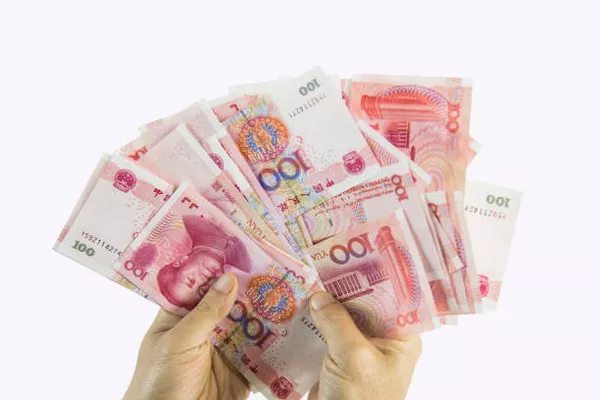In the bustling financial hub of Hong Kong, where currencies from around the world exchange hands daily, one might expect the Chinese Renminbi (RMB) to play a significant role. However, despite its proximity to mainland China and the growing influence of the Chinese economy, Hong Kong has maintained its own currency system, primarily centered around the Hong Kong Dollar (HKD). This article delves into the reasons behind Hong Kong’s decision not to adopt the RMB as its primary currency.
1. Historical Context
Colonial Legacy
Hong Kong’s history as a British colony until 1997 significantly shapes its monetary and financial systems. During this period, the Hong Kong Dollar was established as the official currency, maintaining stability and confidence in the local economy. Even after the handover to China, Hong Kong has retained its monetary autonomy, including the authority to issue its currency.
Preservation of Autonomy
One of the core principles of the “one country, two systems” framework, under which Hong Kong operates since its return to Chinese sovereignty, is the preservation of its economic and financial autonomy. While the RMB is the official currency of mainland China, Hong Kong maintains control over its monetary policy, allowing it to respond flexibly to local economic conditions.
2. Financial Infrastructure
Established Monetary System
Hong Kong boasts a robust and well-established financial infrastructure that centers around the Hong Kong Dollar. Its banking system, capital markets, and financial regulations are deeply integrated with the HKD. Switching to the RMB would require significant adjustments and could disrupt the stability that businesses and investors have come to rely on.
Currency Peg
Since 1983, the Hong Kong Dollar has been pegged to the US Dollar within a narrow trading band. This peg has provided stability and predictability to the local economy, making it an attractive destination for international investors. Adopting the RMB would necessitate reconsidering this peg, potentially introducing volatility and uncertainty into the financial markets.
3. Internationalization of the RMB
Limited Convertibility
While the Chinese government has taken steps to internationalize the RMB, including promoting its use in cross-border trade settlements and investment, its convertibility remains restricted compared to major reserve currencies like the US Dollar and Euro. The limited convertibility of the RMB presents challenges for businesses and financial institutions in Hong Kong, limiting its appeal as a primary currency.
Regulatory Environment
Hong Kong operates under a distinct legal and regulatory framework, separate from mainland China. While efforts have been made to align regulations between the two jurisdictions, significant differences remain, particularly concerning financial regulations and capital controls. These differences complicate the integration of the RMB into Hong Kong’s financial system.
4. Political Considerations
Sensitivity to Mainland China
The relationship between Hong Kong and mainland China is complex, characterized by tensions over issues such as governance, autonomy, and human rights. Adopting the RMB as the primary currency could be perceived as further integration with mainland China, potentially exacerbating concerns about eroding Hong Kong’s distinct identity and autonomy.
Currency as a Symbol
The Hong Kong Dollar serves as a symbol of the city’s identity and resilience. Despite its small geographic size, Hong Kong has emerged as a global financial center with a currency recognized and traded worldwide. Retaining the HKD reinforces Hong Kong’s status as a separate entity with its own economic and financial systems.
FAQs
Q1: Can I use RMB in Hong Kong?
A1: While some businesses in Hong Kong may accept RMB for transactions, the primary currency used in the territory is the Hong Kong Dollar. It’s advisable to exchange currency before traveling to Hong Kong or utilize local banking services for currency conversion.
Q2: Will Hong Kong ever adopt the RMB as its official currency?
A2: The adoption of the RMB as the official currency in Hong Kong is unlikely in the near future. The territory’s monetary autonomy, established financial infrastructure, and political considerations make such a transition complex and challenging.
Q3: How does the peg to the US Dollar affect Hong Kong’s economy?
A3: The peg to the US Dollar provides stability to Hong Kong’s economy by anchoring the value of the Hong Kong Dollar. It promotes investor confidence, facilitates international trade, and helps to control inflation. However, it also means that Hong Kong’s monetary policy is influenced by US Federal Reserve decisions.
SEE ALSO Why Is China’S Currency Getting Weaker? A Comprehensive Analysis
Conclusion
Hong Kong’s decision not to extensively adopt the RMB reflects its commitment to maintaining currency stability, financial autonomy, and integration into global markets. While the RMB’s internationalization presents opportunities for closer economic ties with mainland China, regulatory constraints and market dynamics continue to shape Hong Kong’s currency preferences. As the global financial landscape evolves, Hong Kong will navigate these complexities while preserving its position as a leading international financial center.


